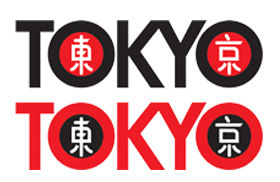3 Franchising Insights from Tokyo Tokyo's Success
- Francorp Philippines

- Nov 25, 2025
- 3 min read
Franchising has opened doors for countless entrepreneurs to scale their brands, expand across regions, and dominate industries while building robust networks of business partners. Tokyo Tokyo, one of the Philippines’ most recognized quick-service restaurant brands, provides an invaluable case study for aspiring franchisors on how to franchise your business effectively, sustainably, and profitably.

The Legacy of Tokyo Tokyo: A Brand That Stands the Test of Time
Tokyo Tokyo, a pioneer in the Filipino restaurant landscape, first introduced its fast-casual Japanese cuisine in 1985. Established in the now-defunct QUAD Carpark in Makati City, the restaurant achieved numerous industry “firsts”—from being the first quick-service Japanese restaurant to popularizing unlimited rice with signature dishes like chicken teriyaki and prawn tempura.
While establishing itself as a household name, Tokyo Tokyo maintained its tradition of product innovation, offering creations like ramen that resonated with its broad and evolving clientele.
By its franchising debut in 2007, Tokyo Tokyo had amassed national recognition with 55 strategically located branches. This laid the foundation for a robust franchise network. Notably, Tokyo Tokyo’s acquisition by the Ramcar Group of Companies in 2008 helped further solidify its leadership, marking the start of an era marked by advanced organizational systems and nationwide growth.
Tokyo Tokyo’s rise through franchising presents a wealth of lessons for savvy franchisors who are evaluating how to franchise your business successfully.
Three Franchising Insights from Tokyo Tokyo’s Success
1. Strong Organizational Foundations are Essential
Tokyo Tokyo’s transformation following its acquisition by the Ramcar Group underscores the importance of building scalable organizational systems. Recognizing the demands of nationwide expansion, the Ramcar Group established the Ramcar Food Group in 2009—a specialized division dedicated solely to ensuring operational excellence across its restaurant portfolio.
Action Step for Franchisors: Focus on creating replicable operational systems, robust supply chain management, and professional development programs for franchise support personnel. Having this foundation allows franchisors to accommodate accelerated growth without compromising quality or reliability.
2. Continuous Franchisee Support Fuels Network Growth
A franchise system thrives on collaboration, knowledge sharing, and ongoing mentorship. Tokyo Tokyo exemplifies this principle by maintaining consistent consultations and support mechanisms for franchisees—even decades after its inception. This form of proactive engagement ensures brand standards are upheld while fostering a culture where franchisees feel empowered to succeed.
Action Step for Franchisors: View franchisee relationships as partnerships. After finalizing agreements, introduce regular coaching sessions, peer forums, and operational audits to ensure alignment and success. Franchisees should feel they are in business "for themselves, but not by themselves."
3. Tap into Local Markets with Culturally Relevant Innovation
Tokyo Tokyo’s ability to resonate with Filipino consumers stems from its dedication to offering culturally aligned yet differentiated products. By introducing unique menu items like beef misono or pork tonkatsu under a quick-service format, Tokyo Tokyo created an identity distinct from traditional Japanese cuisine, ensuring lasting appeal in the Philippine market.
Action Step for Franchisors: To successfully franchise your business, adapt your offerings to suit local tastes without compromising the authenticity of your brand. Conduct detailed market research and stay attuned to evolving trends to keep your brand relevant. This approach can set your franchise apart in competitive markets.
The Blueprint for Franchising Success
Tokyo Tokyo’s franchising triumph reiterates the importance of preparation, innovation, and collaborative growth. As a franchisor considering how to franchise your business, reflect on these three critical pillars: invest in a strong foundation, prioritize franchisee relationships, and balance localization with innovation.
By embedding these principles into your strategy, you can position your brand for not just growth, but sustained success in the ever-competitive global franchising landscape. Tokyo Tokyo’s inspiring journey underscores that franchising is not merely about expanding a footprint—it’s about creating enduring partnerships and delivering consistent value to both franchisees and customers alike.
Franchising success begins with preparation, collaboration, and a commitment to excellence—Tokyo Tokyo shows us just how impactful these elements can be.
Do you want to know if you’re ready to franchise your business? Take this free franchisability test or attend the “How to Franchise Your Business” seminar. Visit this link for more information.



Comments